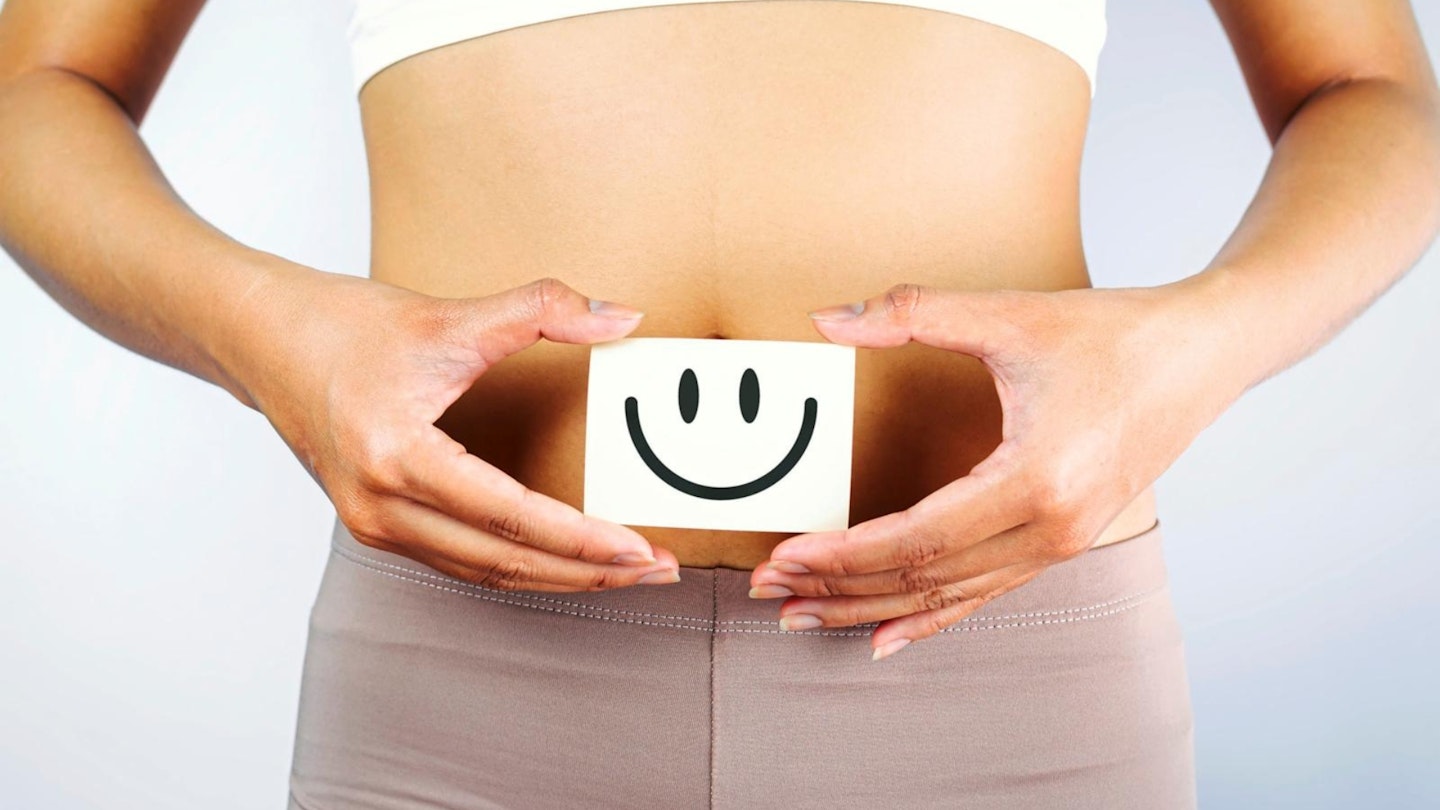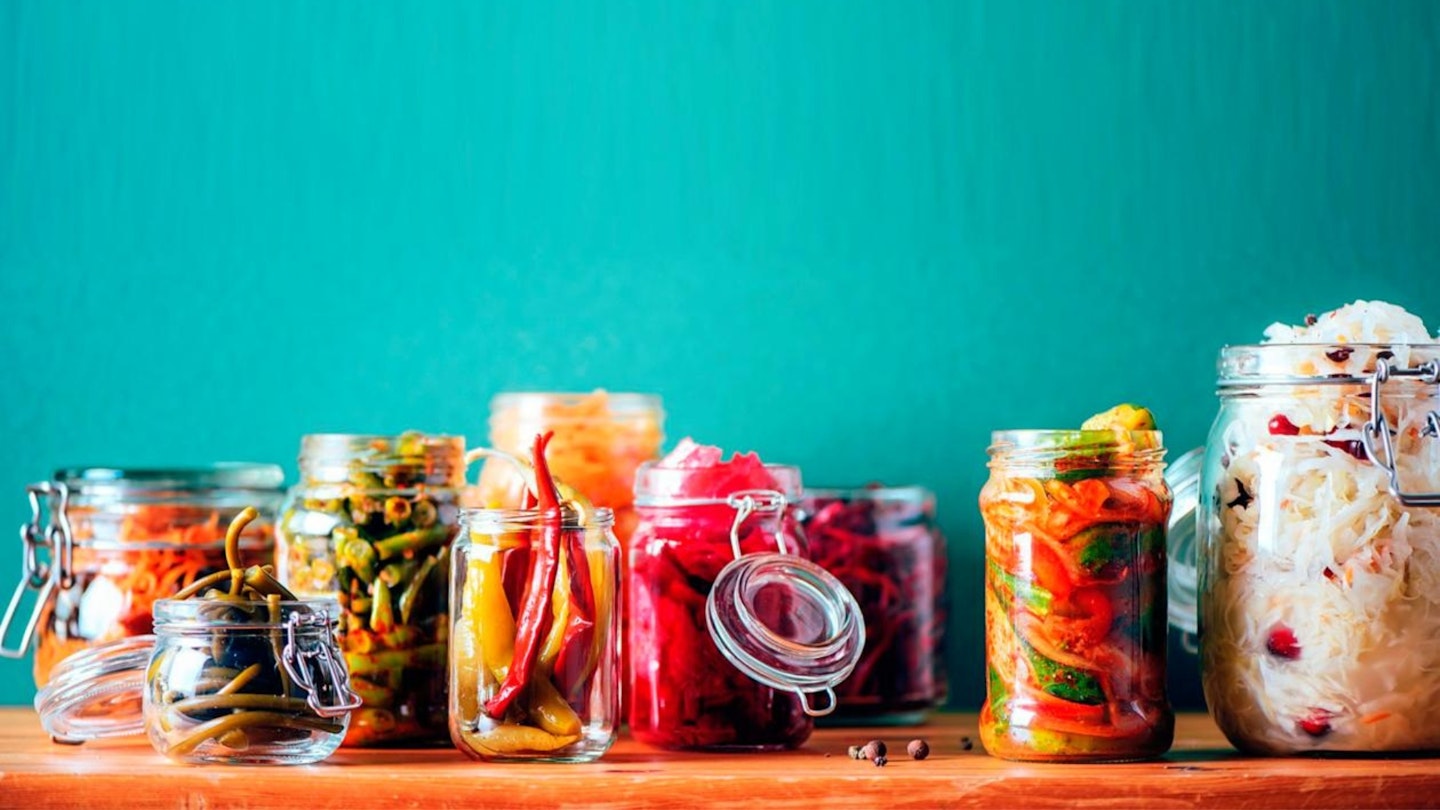Your mood can be affected by many factors – relationships, work, health, finances, your environment and even the weather can have an effect on whether you feel happy, sad or just plain bad. But over the past few years, there has been increasing evidence linking our gut health to our mental and brain health. “Traditionally, the gut has been viewed as an organ responsible for digestion and the absorption of nutrients, but recent scientific discoveries have shown that it communicates with the brain and influences our emotions,” says Dr Jelena Vulevic, a specialist in gut microbiology and co-creator of The Y Collection, a supplement range to support gut health and healthy ageing.

How the Gut-brain axis works
This is a complex communication network that the gut and the brain use to send signals to each other. “The gut-brain axis is finely tuned, meaning that any imbalances in the gut could affect your mood,” says Dr Jelena. The brain and gut send signals to each other via something called the vagus nerve. This is the largest nerve in the body and runs from the brain stem to the abdomen. Signals are also sent via chemical ‘messengers’ made in the brain, which are called neurotransmitters. The brain needs neurotransmitters to tell the body what to do - they regulate many essential functions including heart rate, breathing and digestion, as well as concentration and mood.
The microbiome
The microbiome is like a mini eco system in the body and is the name given to the trillions of bacteria that live in our intestinal tract. Modern life, with its combination of factors including processed food, stress and overuse of antibiotics (which can all strip your gut of its healthy bacteria), can deplete your microbiome and impact your general gut health.

“The trillions of bacteria that live in the gut produce compounds that can influence the production and function of neurotransmitters,” Dr Jelena says. One of these neurotransmitters is serotonin, which is also known as the ‘happy hormome.’ A whopping 90 per cent of the body’s serotonin is produced in the gut. So having a healthy gut can positively influence your mood – and vice versa.
Chronic inflammation in the gut has also been linked to mood disorders like depression. “This happens when the immune system’s reaction to inflammation causes imbalances in neurotransmitters,” Dr Jelena says. Studies show that eating a healthy, balanced diet such as the Mediterranean diet and avoiding inflammation-producing foods may be protective against depression (more on that in a bit).
Gut instinct and blushing guts
We’re all familiar with the terms ‘gut instinct’ or having a ‘gut feeling’ about something. Is there a scientific basis in it? “Some research suggests that intuition has a neurobiological basis that could involve the gut, but seeing as this refers to intuition and intuition is a subjective experience, the scientific community has not yet reached a consensus on how to define or measure it,” says Dr Jelena. “Nevertheless, we do know that when you blush, so does the inner lining of your gut.” So now you know there’s actually a medical explanation for getting butterflies when you fancy someone!
8 things harming your gut health
Dr Jelena shares the main culprits that could be affecting our gut health. If you're wondering how to improve gut health for mental health, eliminating these factors could be the key.
-
Poor diet: A diet high in processed foods, added sugars, unhealthy fats, and low in fibre can disrupt the balance of bacteria in the gut and trigger inflammation.
-
Stress: Stress hormones can lead to digestive issues and inflammation.
-
Lack of exercise: Exercise helps promote a diverse and healthy gut microbiome, which in turn supports gut health.
-
Antibiotics: Antibiotics can disrupt the gut microbiota (the variety and type of bacteria and other microorganisms in the body) by killing beneficial bacteria.
-
Chronic inflammation: inflammatory conditions like inflammatory bowel disease (IBD), coeliac disease, or food intolerances can cause chronic inflammation that can damage the gut lining, disrupt gut function, and negatively impact overall gut health.
-
Lack of sleep: Sleep deprivation has been linked to changes in the gut microbiota, increased gut permeability (leaking), and inflammation.
-
Alcohol: This can irritate the gut lining.
-
Smoking: Smoking has been associated with an increased risk of gastrointestinal disorders, such as peptic ulcers and Crohn's disease. Smoking can also disrupt the balance of gut bacteria and compromise gut health.
What food is good for gut health
“Research shows that altering the bacteria in your gut using probiotics (beneficial bacteria) or certain diets can have a positive effect on mood,” says Dr Jelena. “Maintaining a healthy gut involves adopting a well-rounded approach that includes a balanced diet, stress management, regular exercise, adequate sleep, and avoiding anything that triggers gut inflammation.”

Fermented food can boost the gut microbiome and increase the amount of healthy bacteria, while eating fibre-rich fresh foods helps to feed the gut and keep it thriving and working, while studies say it can reduce inflammation.
Mood boosting foods
If you have been thinking about how to improve gut health for mental health, incorporating these foods into your diet can be the first step.
Fridge: Sauerkraut, Kimchi, Kefir, Live yogurt, Miso, Pickles
Cupboard: Olive oil, Whole oats, Quinoa, Wholegrain bread, Brown rice, Dried herbs and spices like ginger, turmeric, cinnamon and fennel
Fresh: Apples with skin on, Pears with skin on, Bananas, Oranges, Blueberries, Raspberrries, Watermelon, Broccoli, Asparagus, Green peas, Sweet potatoes with skin on

Do gut health supplements work?
Supplements are a popular go-to for gut health but it can be a bit of a minefield. Look for brands that have science-backed claims. Do your research – reputable brands will have information on their websites and products will have reputable studies that verify their claims. “While these supplements can potentially support gut health, their impact on brain health is an area of on-going research,” says Dr Jelana. “The best starting point is to look for gut health supplements that have peer-reviewed studies with mood or brain function as an endpoint.”
Types of supplements for gut health
Probiotics are live beneficial bacteria that can help restore or maintain a healthy balance of gut microorganisms. They can support digestion, enhance nutrient absorption, strengthen the gut barrier, and modulate immune function. Some studies have also suggested that certain strains of probiotics may have positive effects on mood and cognitive function, although further research is needed in this area.
Prebiotics are dietary fibres that serve as food for beneficial bacteria in the gut. They help promote the growth of healthy gut bacteria.
Postbiotics are the by-products that probiotic bacteria release during their growth and activity. Postbiotics can prevent inflammation in the gut.
Fibre supplements: Some people may find it challenging to consume an adequate amount of fibre through their diet alone. Fibre supplements can provide an additional source of fibre to support digestive health.
Digestive enzymes: Supplementing with digestive enzymes may help individuals with specific digestive disorders or enzyme deficiencies.
Meet the expert
Dr Jelena Vulevicis a specialist in gut microbiology and co-creator of The Y Collection, a supplement range to support gut health and healthy ageing.
Jo Carnegie is a seasoned journalist and author with over 25 years of experience in the wellness and lifestyle sectors. Formerly the Deputy Editor of Heat magazine, she is renowned for her insightful celebrity interviews. Jo has published nine women's fiction books and is also an accomplished ghostwriter. Her passion for adolescent health and wellbeing has led her to become a dedicated coach in this field, where she supports young people in navigating various challenges.
